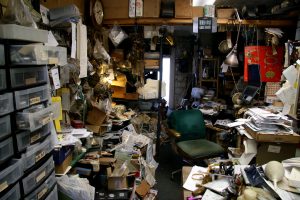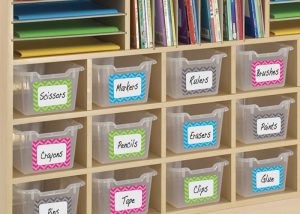
“who has the time.” by GYLo is licensed under CC BY-ND 2.0
You know when you are organizing your home or garage and things usually get messier before they get better? I am in the messy stage of developing my research project question. I knew when I started my master’s degree that my goal was to inform and enrich the development and implementation of my Environmental Science 11 class next spring. Over the past six years I have been inspired by the changes in education in BC, and I have taken advantage of professional development opportunities regarding inquiry, indigenous curriculum, assessment, and curriculum development. I am excited to offer a course to students that is guided by their interests and questions, has a positive impact on their local community and environment, and offers authentic hands-on science experiences with local experts. I am bringing all of my learning together in the development of Environmental Science 11, so there seems to be many opportunities for a research project. In the past month I have also been introduced to a variety of research methodologies and been continually inspiration by my peers so that now I feel like a kid in a candy shop that can’t make up her mind.
Thankfully, not everything is messy.
I have learned many things thus far that I can say with certainty I will incorporate into my teaching practice. The phrase “Voice and Choice” has come up regularly, and it has become a focus for me when developing a student centered learning environment. I have appreciated the authentic invitation to contribute and ask questions during and after class, and am reminded how imperative it is that the teacher is approachable and encouraging. Furthermore, I have valued opportunities to choose the pathways for my learning. What a worthwhile experience it is to be a student again and have that perspective when I return to my classroom!
While considering my assessment practices for a student-driven inquiry based curriculum I recognized that I will need to provide my students with choice regarding how they display their learning. Originally, I had it planned out that students would complete weekly reflections on their learning as blog entries and present evidence of their learning in an e-portfolio. My perspective has changed significantly in the past month and my preconceived notions have been challenged. Students needn’t be restricted in how they provide evidence of their learning. I have begun to appreciate the potential roles that technology can have for assessment, but also in project organization (Trello, OneNote), refection (Flipgrid, blog posts), communication (WhatsApp, Slack), and learning from and inspiring others (blog posts, Twitter, and other social media platforms). I look forward to offering and welcoming a variety of ways for students to learn, reflect, organize and present their work.
I have become a more informed user of technology and am grateful that I can implement and pass that knowledge on to my students. BC FIPPA Guidelines, BC Cloud Computing Guide, and Creative Commons, will be important resources for helping students become informed and responsible digital citizens. For myself, learning more about the responsibilities and repercussions of having an online presence have helped me develop my PLN with confidence and intention and I have begun to tap into an educational community that is rich in experience and knowledge.
Here comes the messy part: Identifying and developing my research question.
Learning is messy, and we have to be comfortable with risk, failure, growth and revision” -George Couros
When I started this program my question was “How can technology be used to facilitate communication and collaboration in the classroom?” Technology will be an integral part of communication and collaboration, I am sure, but technology is no longer my focus. My attention has turned to how I can support communication and collaboration in a broader sense. This might include teaching specific communication skills, facilitating Scrum meetings, being more(or less) involved in student-mentor interactions, and considering how technology can be implemented for effective communication.
Recently, while writing a blog post for 568, I realized that building positive relationships is my primary goal, and that communicating, cooperating, and collaborating are the stepping stones towards that goal. John Spencer’s twitter post raised the question of whether skills of collaboration can be learned (and taught) as a progression from effective communication skills to cooperating and finally to collaborating.
Cooperation versus collaboration. pic.twitter.com/ytIaoJaxpK
— John Spencer (@spencerideas) July 22, 2019
So I am left wondering, is my question “How can I support collaboration in my classroom?” or “How can I teach communication skills, cooperative skills and collaborating skills?”
Things get even messier when I consider my research method. I began this month really excited to conduct the type of quantitative analysis I am so familiar with in my science classroom. Anaylzing test scores was out of the question, as my Environmental Science class was not going to be assessed through traditional testing methods. Questionnaires with scaled answers from 1-10 could be used to analyze student perceptions of the course, their enjoyment, their engagement, their learning, etc. Alternatively, I could collect data on the type(s) of technology that students chose to use for communicating, and how frequently they used that method of communication. Dr. Alexandra D’Arcy presentation regarding the UVIC Human Research Ethics Board raised some serious concerns for me, and it became clear that I do not want to jeopardize the trust and relationships that I build with my students for my own educational purposes. Now I am considering a reflective self study or a qualitative analysis using interviews with community mentors that can be used to inform and improve my practice (and hopefully that of other educators).
Learning about research methods, ethical considerations, and watching Kitchen Stories (by Bent Hamer, 2003) have raised many questions about what exactly I will be researching and how I will go about my research. I, the researcher, am interested in researching collaboration with community mentors in the Environmental Sciences. I am interested in the following questions:
- How might effective collaboration skills be taught, encouraged and facilitated?
- How might collaboration influence student interest in Environmental Science?
- How might collaboration impact student ability to engage in scientific inquiry?
- Will collaborating with high school students be a valuable experience for community mentors?
Ultimately, I hope that my research will have value to myself and other readers interested in implementing collaboration during student-driven inquiry projects in science.
The article I read for my last blog assignment in EDCI 568, Activity Features of High School Students’ Science Learning in an Open-Inquiry-Based Internship Programme, has provided me with some structure for moving forward with the 7 key features of activity theory; tools, subject, communication, rules, object, division of labour, and outcome. These features can provide a framework for teaching and assessing collaborative inquiry projects, and they can also provide a framework of learning for students. These 7 key features, when considered within the context of the 5 R’s (respect, relevance, reciprocity, responsibility, and relationships) from A Case Study of the First Nations Schools’ Principals Course, can provide a strong foundation for intentionally teaching and developing respectful relationships that can contribute to effective collaboration.
To conclude, the experience of returning to research this past month has been extraordinary. My ultimate goal is to provide positive and meaningful learning experiences for my students, and I believe that can be achieved through engaging in collaborative inquiry projects. I have been introduced to many valuable tools for communication, organization, networking and reflection that will assist me in designing and implementing inquiry-based learning opportunities in Environmental Science 11. Further analysis of research will help me discover how I can best support students when engaging in collaborative relationships with community members. Although things are messy at the moment, I have learned two very powerful tools that will facilitate my professional growth and help develop my research project.
- Returning to research and developing my professional learning network has inspired me and informed my practice.
- Constructing blog posts has been instrumental for processing, organizing, and synthesizing information.
These two activities will be allow me to thoughtfully develop research that will ultimately lead to improvements in my teaching and thereby in student learning.

“Organization” by Ms.Palania is licensed under CC PDM 1.0
Rene Schwarz says:
Great thoughts never grow from sterile soil. Mess is good (at least I hope so, have you seen my classrooms?) Good find on cooperation and collaboration. Best wishes.
July 27, 2019 — 8:52 pm